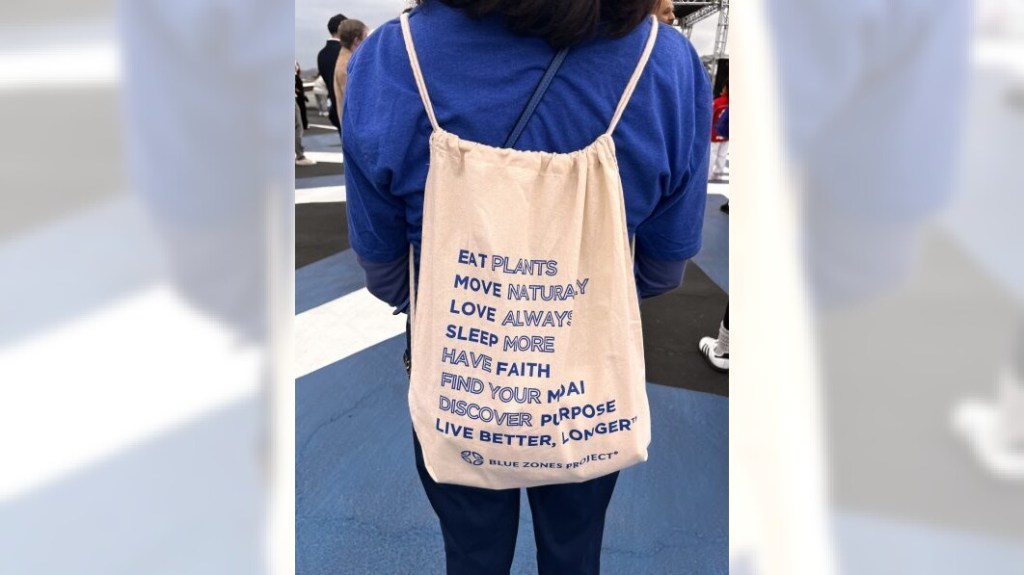Harvard University recently released a study that set out to rank well-being among people throughout the world. The Global Flourishing Study surveyed over 200,000 residents of 22 countries, evaluating physical and mental health, happiness, meaning and purpose, character, and social relationships.
The study found great variations from country to country, as well as some interesting patterns. Indonesia, Mexico, the Philippines and Israel ranked highest, while Japan, Turkey and the U.K. ranked lowest. The U.S. ranked somewhere in the middle, at No. 15 of 22 countries.
What was clear in the study was that living in a country with greater financial resources does not guarantee greater happiness. In an April 30 New York Times article, the authors noted that “most of the countries that reported high overall composite flourishing may not have been rich in economic terms, but they tended to be rich in friendships, marriages and community involvement.”
The study also found that young people are struggling most, with those over 50 demonstrating the highest levels of flourishing. Those who are married, those with more education, and those who attend religious services also ranked higher on the index.
Although this is a relatively new body of research, study after study confirm that — even as nations develop and gain more wealth and conveniences — we continue to struggle with mental well-being as humans.

May is Mental Health Awareness Month and is a good reminder to prioritize taking better care of ourselves and those around us. There are times when each of us need additional support, and sometimes seeking counseling or psychiatric care may be necessary. But we also know that making small changes in our lives can help improve wellness and reduce mental health challenges.
During the COVID-19 pandemic, I was tasked with providing mental health resources to the 400 employees within the organization where I was working at the time. In researching how to thrive in times of stress and uncertainty, what I kept coming back to repeatedly was that taking care of our minds begins with taking care of our bodies.
Although we all know that eating well, exercising, and getting enough sleep should make us physically healthier, do those same priorities come to mind when thinking about our mental health? The research says they should.
“Physical health and mental health are inseparable – what we do for our bodies has a profound impact on our minds,” said Kim Saruwatari, public health director for Riverside University Health System. “By prioritizing activities like exercise, nutrition, and rest, we not only strengthen our bodies and improve health, but we also build resilience, reduce stress, and improve our overall well-being.”
Saruwatari is a key leader in Riverside County’s effort to improve health outcomes across the region, including the launch of a multi-year, collaborative Blue Zones initiative. She emphasizes that “by prioritizing connection, reflection, and purpose, we can build stronger, healthier communities and support each other’s overall wellness.”
RELATED: Riverside County working to create 5 blue zones within 5 years
Among Blue Zones Project’s evidence-based Power-9 principles for living better and longer are several practical strategies that each of us can apply in our lives for battling stress and increasing personal mental wellness, including the following.
Move naturally: You don’t need to hit the gym to get moving. Daily walks, gardening or even dancing in your kitchen can elevate your spirits and clear your mind.
Downshift: Take time to pause. Whether through meditation, prayer, deep breathing or quiet reflection, slowing down can reduce stress and nurture inner calm.
Eat naturally: By trading processed or sugary snacks for fresh fruits, vegetables, and nuts, you can boost your mood and improve concentration.
Right tribe: Surround yourself with positive, supportive people. Strong social connections are one of the most significant predictors of mental wellness. Whether through work, school, church, sports, the arts or volunteering, find a place you can regularly connect with others.
Find purpose: Understanding your “why” gives you direction and resilience, especially during challenging times. Having a mission greater than yourself can bring meaning, fulfillment and gratitude.
If you are interested in learning more about these principles or getting involved in making your community a healthier place, five local Blue Zones Projects have been launched within Riverside County.
To learn more, visit bluezones.com/bzprivco.
Gregory Bradbard is CEO of IEHP Foundation, which works with local community-based organizations to advance the health and wellbeing of the Inland Empire. Inland Empire Health Plan founded IEHP Foundation, a separate 501(c)(3) nonprofit, in 2021. The Foundation strives to ensure all individuals in the Inland Empire have access to Vibrant Health — extending beyond traditional healthcare services and addressing the social determinants of health for the region’s most vulnerable populations.



